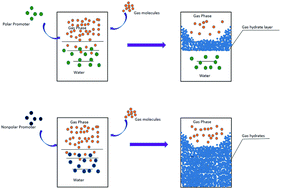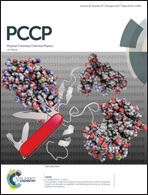The effect of hydrate promoters on gas uptake
Abstract
Gas hydrate technology is considered as a promising technology in the fields of gas storage and transportation, gas separation and purification, seawater desalination, and phase-change thermal energy storage. However, to date, the technology is still not commercially used mainly due to the low gas hydrate formation rate and the low gas uptake. In this study, the effect of hydrate promoters on gas uptake was systematically studied and analyzed based on hydrate-based CH4 storage and CO2 capture from CO2/H2 gas mixture experiments. Raman spectroscopy, Fourier transform infrared spectroscopy (FTIR) and gas chromatography (GC) were employed to analyze the microstructures and gas compositions. The results indicate that the effect of the hydrate promoter on the gas uptake depends on the physical and chemical properties of the promoter and gas. A strong polar ionic promoter is not helpful towards obtaining the ideal gas uptake because a dense hydrate layer is easily formed at the gas–liquid interface, which hinders gas diffusion from the gas phase to the bulk solution. For a weak polar or non-polar promoter, the gas uptake depends on the dissolution characteristics among the different substances in the system. The lower the mutual solubility among the substances co-existing in the system, the higher the independence among the substances in the system; this is so that each phase has an equal chance to occupy the hydrate cages without or with small interactions, finally leading to a relatively high gas uptake.



 Please wait while we load your content...
Please wait while we load your content...